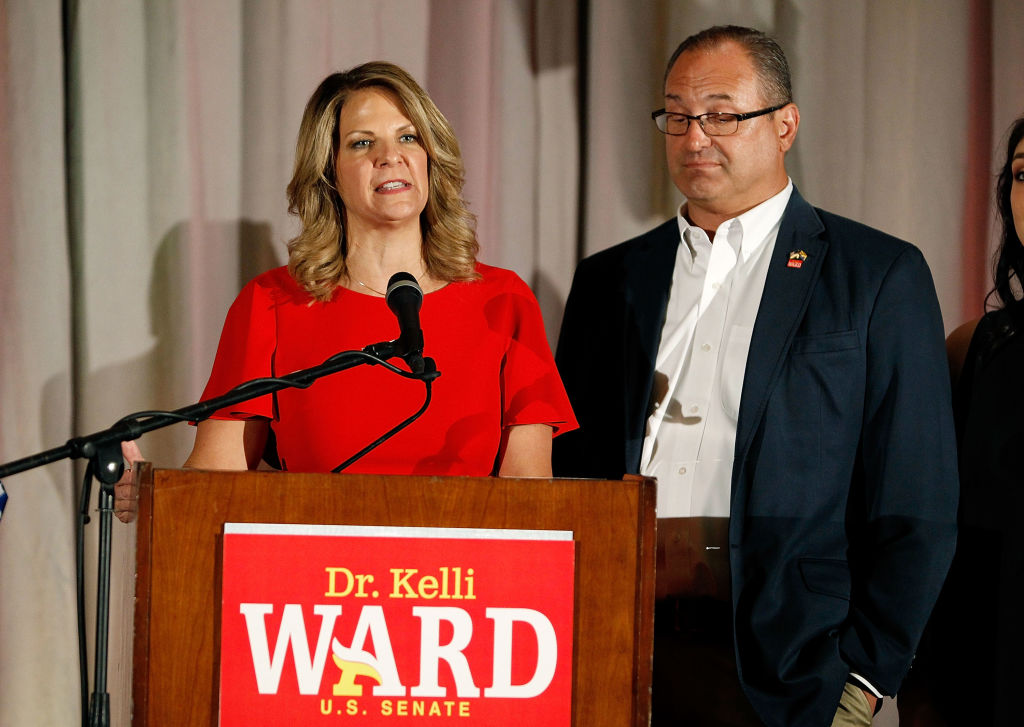Happy Friday! Congratulations to USC quarterback Caleb Williams, who was selected #1 overall in the NFL Draft last night and is headed to the Chicago Bears.
We don’t follow the NFL quite as closely as *cough cough* some others on staff, but we follow it closely enough to know that getting to pick first isn’t exactly a sign of a thriving program. Anyway, we’re rooting for you, Caleb: The vibes of our Monday morning editorial meetings this fall depend on you!
Editor’s Note: Laugh all you want. The Bears’ general manager Ryan Poles’ years-long plan to “take the [NFC] North and never give it back” has now fully come to fruition.
Quick Hits: Today’s Top Stories
- The Ukrainian military received an American-supplied long-range version of the Army Tactical Missile Systems (ATACMS) this week, U.S. defense officials confirmed on Thursday, after the Biden administration had for months resisted sending the long-range weapons. The missiles were a previously undisclosed part of an aid shipment announced in March and have nearly double the range—190 miles—of the ATACMS Ukraine received last year. Ukrainian forces reportedly used the missiles in overnight strikes on Wednesday to hit Russian targets in Crimea. More of the longer-range systems are headed to Ukraine as part of the latest aid package, which included a clause mandating their delivery.
- The Pentagon on Thursday announced the temporary withdrawal of approximately 75 U.S. Special Operations personnel from Chad. The African nation requested that U.S. forces halt operations at an airbase near the capital of N’Djamena but, unlike neighboring Niger, has not moved to eject all U.S. military personnel. American officials said the removal could be temporary and that they plan to continue reviewing the U.S. security partnership after Chad’s presidential elections on May 6.
- Haitian Prime Minister Ariel Henry resigned Wednesday, clearing the way for a nine-member transition council to be sworn in Thursday morning. Henry has been unable to return to the country since he left in late February, as criminal gangs took over most of the capital. Michel Patrick Boisvert, a former economics and finance minister, was appointed acting prime minister. The council is expected to approve the arrival of a Kenyan peacekeeping force to combat gang violence and help restore order.
- The Bureau of Economic Analysis reported Thursday that real gross domestic product (GDP) grew at an annual rate of 1.6 percent in the first quarter of 2024, significantly below expectations. A Dow Jones survey of economists had projected GDP to grow at a 2.4 percent annualized rate between January and March; the third and fourth quarters of last year saw such GDP growth of 4.9 and 3.4 percent, respectively.
- The Federal Communications Commission (FCC) restored net neutrality rules—regulations that prevent internet service providers from blocking or slowing traffic to particular websites—in a 3-2 vote Thursday. Net neutrality rules were first instituted in 2015 under the Obama administration but were repealed by the Trump administration in 2017.
- The U.S. fertility rate fell to 1.62 births per woman last year, according to a data analysis released on Thursday from the Centers for Disease Control and Prevention’s National Center for Health Statistics—a 2 percent decline from 2022 and another record low. The birth rate ticked up slightly during the pandemic, but the 2023 levels confirm the return to its long-term decline.
‘Oh, Sounds Like Fraud!’

By now, the story is a familiar one: On December 14, 2020, 11 people met at the Arizona Republican Party headquarters. The group included the chairwoman of the Arizona GOP, Kelli Ward, and her husband, Michael, as well as Gregory Safsten, the executive director of the state party, Jacob Hoffman, a representative-elect in the Arizona House, Anthony Kern, an outgoing member of the Arizona State Senate, and seven others.
They all signed a document stating they were the “duly elected and qualified Electors for President and Vice President of the United States from the State of Arizona,” and they certified then-President Donald Trump as the victor of Arizona’s presidential election. And they posted a video of it.
If any of this is starting to sound like a broken record, then you probably already know that these 11 people were not the “duly elected and qualified Electors” of their state, which President Joe Biden won by more than 10,000 votes in the 2020 election.
What they are—if not true-blue electors—is a large chunk of the 18 defendants in a nine-count indictment unsealed in Arizona on Wednesday that alleges they conspired “to prevent the lawful transfer of the presidency to keep Unindicted Coconspirator 1 in office against the will of Arizona’s voters.” We’ll give you one guess as to who that secret coconspirator is.
It’s the latest in a series of indictments at the state and federal levels against individuals involved in the effort, spearheaded by some of Trump’s closest aides, to overturn the results of the 2020 election in Trump’s favor in key swing states.
Though their names were redacted in the indictment—potentially indicating they had not yet been physically served with the document—the other seven coconspirators are reportedly high-level Trump aides, many of whom are now old hands at this whole “being indicted” thing. Former Trump chief of staff Mark Meadows, former Trump lawyers Rudy Giuliani and Jenna Ellis, 2020 campaign operative Mike Roman, and fake electors mastermind John Eastman were all also indicted in Georgia last year for their alleged involvement in efforts to overturn the election results in that state’s presidential election. Ellis was one of three Trump lawyers who have pleaded guilty in the Georgia case. A handful of the Trump aides indicted in Arizona are also allegedly unindicted coconspirators in special counsel Jack Smith’s election interference case against Trump.
Two newbies to the indictment circuit are Trump adviser Boris Epshteyn and
Christina Bobb, another former Trump campaign lawyer who was recently tapped to lead the Republican National Committee’s “election integrity” department.
Unlike in Georgia or Smith’s federal election interference case, Trump is not, so far, being charged with any crimes in Arizona. But unlike the election fraud cases in Michigan and Nevada, which saw only fake electors charged, this indictment also ropes in the people in Trump’s inner circle who were aggressively pushing these efforts in seven swing states where the election had been particularly close. “I think that’s a wise move, not to draw [Trump] into this, because that’s just going to delay everything and possibly derail everything,” Gabriel Malor, a Virginia appellate attorney, told TMD, suggesting the Georgia case could take years to come to trial—if it’s tried at all.
Charging those additional defendants was reportedly possible based on the cooperation of former Trump lawyer Kenneth Chesebro, who was charged in Georgia and pleaded guilty with a promise to testify in any future trial. The Washington Post reported that Chesebro provided Arizona Attorney General Kris Mayes’ office with evidence, including documents, that widened the scope of the state’s investigation and ultimately allowed prosecutors to bring charges against the bigger fish.
The Arizona indictment lists one count of conspiracy, two different counts of fraud, and five counts of forgery—one for each of the false elector documents the electors filed with the requisite officials, including the National Archives and the president of the U.S. Senate, who was at that time Vice President Mike Pence. It is not clear from the redacted indictment released this week which of the Trump aides are indicted under which counts, though the 11 fake electors are each being charged with all nine.
The indictment lays out the circular—and, it alleges, criminally fraudulent—logic of the fake elector scheme as explained by Eastman, Chesebro, and others in a series of memos. The Electoral Count Act requires that Electoral College electors meet on a certain day after the presidential election to cast their votes for their state’s winner so that those votes can be certified in Congress on January 6. In 2020, that day was December 14. The Trump team’s theory posited that if there was sufficient doubt about the outcome of the election—either through legal challenges or an ongoing recount—it was acceptable to certify two competing slates of electors, as the state of Hawaii did in 1960 when an unfinished recount meant it was unclear whether Richard Nixon or John F. Kennedy had won the presidential election in that state by the certification deadline.
The defendants launched a well-documented pressure campaign to try to stop local officials from certifying the results of the Arizona election at each possible level, from the county board of supervisors on up to the governor. The indictment claims that during a December 1 meeting with Arizona legislators including then-Republican Arizona House Speaker Rusty Bowers, Trump aides said—when pressed by Bowers for evidence of election fraud—that they’d left the proof back at their hotel. Both Giuliani and Ellis were at that meeting.
A handful of lawsuits baselessly challenged the election results as Trump’s allies loudly claimed, without evidence, that there had been widespread fraud. The Arizona Republican Party as an institution and Kelli Ward personally—with the backing of the other fraudulent electors and allegedly at the behest of Trump aides like Giuliani—were among the plaintiffs suing state election officials and the Democratic slate of electors over the fraud allegations. Republican Gov. Doug Ducey certified the election results for Biden on November 30, ignoring a phone call from Trump—on video—as he did so. Several of the lawsuits, however, were still pending by December 14.
But Mayes’ indictment alleges the competing slate of electors was—by the indictment’s telling, quite transparently—another means to claim the election results were in doubt, not the result of genuine uncertainty. “Arizona Republican electors made statements directly contradicting any intention that their votes would only be used if they succeeded in a legal challenge that changed the outcome of Arizona’s election,” the indictment reads.
Among the evidence the indictment presents to support this claim is the “friendly” lawsuit from then-Rep. Louie Gohmert of Texas in December 2020 against Pence—which the 11 false electors joined. The lawsuit was intended to “ensure he understands that he has the power to do constitutional duty on January 6,” Kelli Ward tweeted at the time, as pictured in the indictment. “And we expect him to do it.” By which she meant certifying the false Arizona electors on January 6, as Eastman infamously suggested in a memo, regardless of the outcome of the bogus legal challenges.
On December 14, 2020—the day of the Electoral College vote—Michael Ward posted on Facebook that he was “proud to cast my vote today as one of Arizona’s 11 legitimate Electors for President Donald J. Trump and VP Mike Pence!”
The argument, Malor explained, became that “Pence can just throw [the genuine electors] out anyways, just because there’s a ‘competing slate,’ even though at that point, that was off in cuckoo land. There was no ‘competing slates.’ These were never bona fide electors.”
In the indictment, which does not include all the evidence that may be presented at a trial, prosecutors also suggest that the electors could have and should have known what they were doing was fraud. According to Chesebro, Kelli Ward at one point expressed concern that it “could appear treasonous for the AZ electors to vote on Monday if there is no pending court proceeding that might, eventually, lead to the electors being ratified as the legitimate ones.”
Other false electors, the indictment also points out, added language making their claim to genuine elector status contingent on whether a court recognized them as such. Apparently, at the insistence of those involved in a similar plot in Pennsylvania, that squishier language was added to the certifications in that state and New Mexico, but not Arizona.
“The purpose of putting that in the indictments, which I think is very clever, is because it shows that they should have had reason to believe at the time that they were doing something wrong,” Malor told TMD. “Because obviously the people in Pennsylvania, they put their hands up and said, ‘Oh, sounds like fraud!’”
While the Arizona case is more straightforward than those in Georgia or Washington, D.C., there are a lot of variables to resolve before it could go to trial. Meadows, for example, tried and failed to move his case in Georgia into federal court last year, claiming any activity he performed was part of his work as a federal officer, and therefore should be considered in federal court. He could try the same maneuver here. It’s also possible that some of the defendants may plead guilty. Ellis has already done so once, in Georgia, and could do so again. But some defendants are maintaining their innocence and have said the state’s top prosecutor—a former Republican turned Democrat over the expansion of “Trumpism” in the GOP—has “weaponized” her office in service of political prosecutions.
But Mayes expected that: “I understand for some of you, today didn’t come fast enough,” she said in a video announcement Wednesday. “And I know I’ll be criticized by others for conducting this investigation at all. But as I’ve stated before and will say here again today, I will not allow American democracy to be undermined. It’s too important.”
Worth Your Time
- Writing for The Atlantic, novelist Rachel Khong argued that the limits of human artistic creation are an asset, not a liability, in a world of artificial intelligence (AI). “Now ChatGPT and other [large language models], trained on a wide store of human-generated literature, stand on the cusp of writing novels in no time at all,” she wrote. “This seems, initially, discouraging. Here is an entity that can seemingly do what I do, but faster. … Unlike me, it won’t need sleep, or bathroom breaks, or patience, or life experience; it won’t get the flu. In fact, AI embodies hypotheticals I can just imagine for myself: If only I could write all day and night. If only I were smarter and more talented. If only I had endless knowledge. If only I could read whole libraries. What could I create if I had no needs? What might this development mean for writing? Considering limitlessness has led me to believe that the impediments of human writers are what lead us to create meaningful art. And they are various: limits of our body, limits of our perspectives, limits of our skills. But the constraints of an artist’s process are, in the language of software, a feature, not a bug.”
- The U.S. healthcare system reflects a strange and costly mix of government-run care (Veterans Affairs), government-funded care (Medicaid and Medicare), and private care (like employer-sponsored insurance). Jim Capretta argued in Law and Liberty that reformers need to better frame arguments for market-reforms to American healthcare, or else the system will drift towards more and more government control. “The challenge is to create new structures that inject durable cost discipline into the provision of medical services without eroding their quality and timeliness,” he wrote. “That should be possible as studies show that much of the high-cost burden is associated with irrational pricing in some settings, frequent occasions when services are rendered to patients despite scant empirical evidence of their efficacy, and heavy administrative overhead and maddening levels of paperwork. … What’s needed is not one-off ideas but a system change that incentivizes continuous productivity and quality improvement in the processes governing patient care. Market proponents must convince voters such a system change is more likely to occur with their ideas and not with more centralized government control. It is a tall challenge, but not an impossible one.”
Presented Without Comment
Baltimore Banner: Ex-Athletic Director Accused of Framing Principal With AI Arrested at Airport With Gun
Baltimore County Police arrested Pikesville High School’s former athletic director Thursday morning and charged him with using artificial intelligence to impersonate Principal Eric Eiswert, leading the public to believe Eiswert made racist and antisemitic comments behind closed doors.
Also Presented Without Comment
New York Post: Biden Reads Out ‘Pause’ Instruction During Speech to Union Members in Gaffe Reminiscent of Ron Burgundy
Also Also Presented Without Comment
Semafor: Russia Embraces K-Pop and Anime as Sanctions Limit Western Entertainment
In the Zeitgeist
Audible and Pottermore—the digital publisher of Harry Potter—announced yesterday that they’ll produce new audiobooks, to be released in late 2025, for all seven Harry Potter books as “full-cast audio productions.”
Toeing the Company Line
- In the newsletters: Will unpacked the shortcomings of Yanis Varoufakis’ new book, Technofeudalism: What Killed Capitalism, Mike reported on what Trump’s New York trial reveals about how the former president operates behind the scenes, and Nick argued (🔒) that the abortion politics “system” is actually working.
- On the podcasts: Sarah is joined by Steve and Jonah on The Dispatch Podcast to discuss the successful passing of Ukraine and Israel aid and explore the intellectual history of the illiberal right.
- On the site: Kevin opines on Trump’s insistence on being called President Trump in court.
Let Us Know
Is Mayes right to bring charges against the fake elector schemers?








Please note that we at The Dispatch hold ourselves, our work, and our commenters to a higher standard than other places on the internet. We welcome comments that foster genuine debate or discussion—including comments critical of us or our work—but responses that include ad hominem attacks on fellow Dispatch members or are intended to stoke fear and anger may be moderated.
With your membership, you only have the ability to comment on The Morning Dispatch articles. Consider upgrading to join the conversation everywhere.